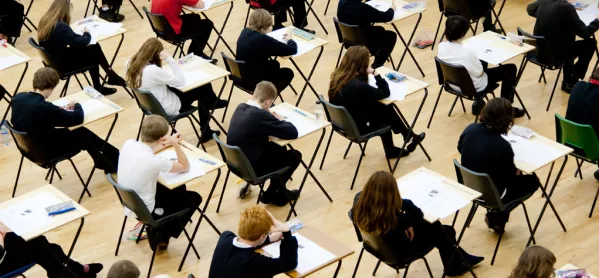Why GCSE results could be static for the rest of the decade
Share
Why GCSE results could be static for the rest of the decade
https://www.tes.com/magazine/archive/why-gcse-results-could-be-static-rest-decade

Results from a new test designed to indicate whether GCSE grades should be allowed to rise are unlikely to be used until 2019, the exams watchdog Ofqual has said.
The test, known as a “National Reference Test”, is designed to allow GCSE grades to rise in line with a genuine improvement in pupils’ performance, without raising concerns about “grade inflation”.
However, a document published by the exams watchdog says that results from the test are unlikely to be used in the next few years, suggesting that exam results across the country are likely to remain relatively static until nearly the end of the decade.
The Ofqual document, submitted to the Commons education committee, says that it would be technically possible to compare students’ performance in the National Reference Test by 2018.
Despite this, it adds: “The first years of GCSE awarding are likely to see improvements in performance, driven by increased exam familiarity rather than improvements in underlying mathematics and English language ability… Hence, it is likely to be in subsequent years when test results can be fully taken into account in GCSE awarding.”
The test has been introduced to address schools’ concerns that exam boards’ use of “comparable outcomes” - a system that holds overall national GCSE grades relatively constant from year to year - prevents genuine improvements in education from being reflected in students’ grades.
A sample of Year 11 pupils at about 300 secondary schools will be chosen to take part in the tests each year, with the questions remaining largely the same. The first tests will take place in 2017.
Individual students will not be told their results, and the results will not be used for school accountability measures, but if one year’s cohort performs significantly better or worse than that of the previous year, it will be treated as a sign that GCSE results as a whole should rise or fall.
Want to keep up with the latest education news and opinion? Follow TES on Twitter and like TES on Facebook
You've reached your limit of free articles this month. Subscribe for £1 per month for three months and get: